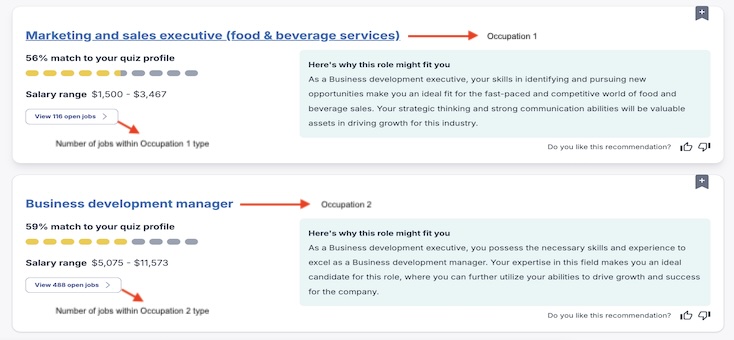The job market in Singapore is undergoing rapid transformation. Digitalization, the rise of new industries, and an increasing emphasis on a skills-first hiring approach are redefining career trajectories and expectations. This shift aims to create a more inclusive job market that values what individuals can do over where they’ve studied or what degrees they hold.
As companies are now prioritizing skills over formal qualifications, especially in emerging and high-demand fields, jobseekers must adapt too by developing relevant skills and leveraging the right resources for career planning.
Tap on advanced job portals to stay ahead

The benefits of a skills-first economy are substantial for employers and jobseekers. Companies gain access to a broader talent pool and are more agile in meeting evolving industry needs. This model opens doors for jobseekers to roles that may have previously seemed out of reach due to rigid qualification requirements.
However, this shift also introduces challenges: Jobseekers must stay current with in-demand skills, continuously upskill, and adapt their profiles to align with industry needs.
Thankfully, as the job market evolves, job portals have also adapted by offering features that help individuals make strategic career moves. From networking to skill-focused job searches, platforms like Jobstreet, Indeed, and LinkedIn provide a range of tools to support your career planning.
- LinkedIn: Ideal for networking in a skills-first market, LinkedIn lets jobseekers showcase skills and certifications and connect with professionals. LinkedIn Learning also offers courses in high-demand skills, keeping users competitive and job-ready.
- Indeed and Jobstreet: These platforms help track job availability and hiring trends. Indeed provides job reviews and salary insights, while Jobstreet offers company insights and employee reviews, guiding jobseekers in aligning skills and experiences with suitable roles.
While most job portals offer essential resources, MyCareersFuture uniquely suits Singapore’s job market and supports the nation’s shift towards a skills-first economy. Providing a skills-based approach to career planning, the portal’s CareersFinder feature boasts the Occupation Recommender tool, which goes beyond standard job listings by assessing and aligning your skills with relevant occupations.
Suppose you plan to make a mid-career shift. In that case, the Occupation Recommender tool helps you identify the occupation that best suits your skillset and the available job roles under that occupation.
Here are three easy steps to use the CareersFinder feature and access the Occupation Recommender tool:
Step 1: Go to CareersFinder and log in with your Singpass.

Step 2: Respond to the quiz questions.

Step 3: Receive recommendations for suitable occupations and job vacancies within each occupation.

Focusing on skills rather than rigid qualifications, the Occupation Recommender is a key tool for you in adapting to Singapore’s changing job landscape.
Effective career planning in a skills-first job market

Career planning in Singapore’s skills-first job market requires flexibility, an eye for emerging trends, and the right tools. You can confidently navigate this changing landscape by combining skill-building with data-driven insights. Here are some ways:
1. Stay updated on industry trends
Track thriving sectors and in-demand skills through industry news, professional networks, and reports to keep your skillset relevant in Singapore’s evolving economy.
2. Prioritise skill-building
Relying solely on past qualifications is no longer enough. Platforms like LinkedIn Learning and SkillsFuture Singapore offer courses in high-demand skills, such as digital literacy and project management.
3. Use job portals for market insights
Beyond applications, job portals like Indeed, Jobstreet, and MyCareersFuture provide data on salary ranges, skill requirements, and job demands to guide your career planning.
4. Highlight your skills
Showcase critical skills on LinkedIn or MyCareersFuture’s Skills Tagging to stand out to employers by emphasising relevant strengths.
5. Seek guidance
Career coaching services on MyCareersFuture and industry events can provide tailored insights and mentorship for navigating Singapore’s job market.
Embrace career planning with a skills-first mindset

Adopting a skills-first approach empowers you to match your abilities with evolving industry needs, making career planning more strategic and adaptable. By focusing on skill development, staying attuned to emerging trends, and proactively charting career paths, you can turn challenges into growth opportunities, which sets you up for long-term success in a rapidly changing job market. Good luck!















